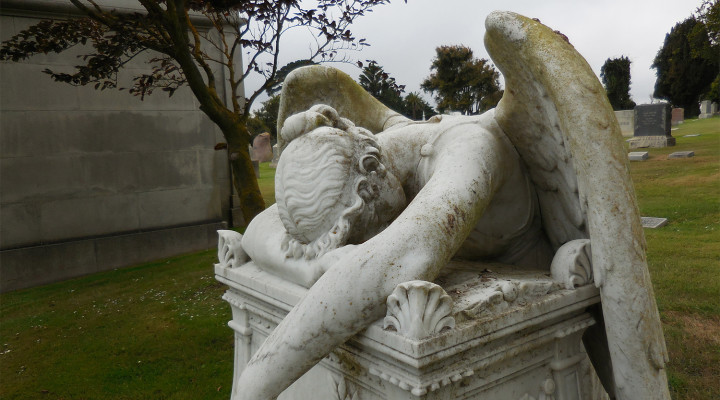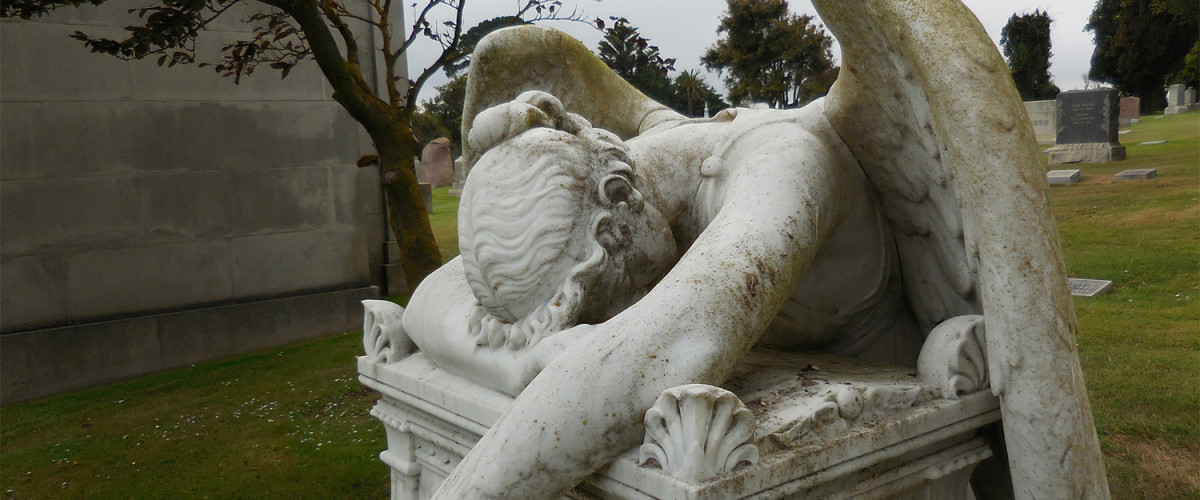Seasoned pastors with hundreds of funerals under their belts have seen the rites go from one extreme to another over the past three or four decades.
“Growing up, almost every funeral was morbid, with open caskets and everything from the pulpit being highly emotive,” said Barry Howard, senior minister at First Baptist Church in Pensacola, Fla. “And there were always a lot of stories to elicit tears.”
But it’s long since swung the other way, said Howard, who has presided over more than 850 funerals since 1979. Nowadays, many families and friends attend “celebrations of life” complete with upbeat music, loads of humor and barely a stitch of black clothing to be seen.
“We’ve done that to the extreme,” Howard said.
‘The sting of death’
That trend also caught the eye of Courtney Reissig, a Little Rock, Ark., author who penned a guest article for Christianity Today titled “Don’t Force the Celebration at Funerals.”
In her college years, Reissig said she wanted her own funeral to be an emotionally and musically upbeat affair because — after all — she would be “in a better place” with Jesus.
“In my youthful zeal, I thought my funeral should be a joyous celebration,” she said in the article.
She noted that much of the rest of the culture, and other parts of the world, were in agreement with her upbeat approach.
But this singular focus on the positives of death can also be troubling to those struggling with grief. And it can create tension for Christians.
“In assuring ourselves that death has no sting,” Reissig wrote in reference to the passage in First Corinthians, “we can deny that the sting of death is still felt.”
‘A way of letting go’
But trying to avoid grief brings its own sting, said Stacy Sergent, a clinical staff chaplain at the Medical University of South Carolina in Charleston.
Like others in her field, Sergent is often present with families at the moment a loved one dies. She said it’s common to hear many of them express confusion and guilt from the very beginning.
“Sometimes Christians will say, ‘I am so selfish, I shouldn’t be crying when she is in a better place,’” Sergent said. “There is some guilt tied up in that.”
Part of the problem is that many people don’t understand the nature and purpose of grief.
“It’s a change in the relationship with the person” who has died, she said. “They are not physically here anymore, so you have to learn how to live with the new reality of only having … the memories and love you have for them.”
That journey may involve a somewhat orderly journey through the stages of denial, anger, bargaining, depression and acceptance. Or those stages may be experienced in random order.
“Grief can be very messy and it may be very individual,” Sergent said.
Part of the problem is that many people don’t understand the nature and purpose of grief.But whatever it looks like, it must be embraced, she added.
“Grief is a way of letting go.”
Avoidance can lead to depression and physical health problems, she said. It can also then be triggered years later by anniversaries or other losses.
“There can be emotional damage and it can put stress on people, which sometimes comes out as anger.”
So Sergent said she gets to work right away when loved ones feel a conflict between feelings and faith.
“I remind them that Jesus grieved, Jesus cried. That’s not sinful. That’s wrong.”
The both-and approach
When it comes to funerals, Howard said it’s important avoid extremes.
On the one hand he remembers a time when funeral homes provided preachers with smelling salts for those who were expected to faint from their grief. Any kind of smiling or laughter was considered inappropriate.
On the other hand, Howard said he’s seen families and friends declare it inappropriate to grieve because the deceased is in heaven.
“A memorial ought to both help celebrate and equip for the journey of grief. I try to do both in my services.”
The both-and approach to joy and grief in memorials more accurately reflects how human beings have been created, Howard added.
In many services “we often experience the simultaneous emotions of grief and relief. God has equipped us to experience both at the same time.”




